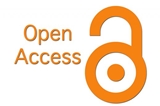Rumors and other bad habits. The evidential conditional in Spanish
DOI:
https://doi.org/10.24201/clecm.v3i2.37Keywords:
conditional, evidentiality, deixis, epistemic modalityAbstract
This paper investigates the so-called “rumor conditional” in Spanish (CR), typical of the journalistic discourse, as in El primer ministro renunciaría en las próximas horas. Its modal features and particularly its evidential properties are discussed from a deictic understanding of evidentiality, based on the work of Bermúdez (2006). CR is compared to another use of the conditional verb form, typical of scientific discourse, with which it is often confused, as in juventud sería el lapso que media entre la madurez física y la madurez social. It is proposed that the CR is a marker of third-hand information, while the scientific conditional indicates second-hand information and cognitive access to the information source. The analysis also functions as indirect evidence of the adequacy of the deictic approach to evidentiality
Original received: 2016/01/27
Review sent to author: 2016/03/24
Accepted: 2016/05/19
Downloads
Downloads
Published
How to Cite
Issue
Section
License
Authors retain copyright of their work and are free to disseminate it, make copies for any use, and/or deposit in any repository or archive of their choice, but they grant Cuadernos de Lingüística de El Colegio de México the right to publish the work for the first time. Authors agree to acknowledge Cuadernos de Lingüística de El Colegio de México as the site of original publication of their article / note / review through proper citation.
Articles appearing in Cuadernos de Lingüística de El Colegio de México are made available to readers under a Creative Commons Attribution-NonCommercial 4.0 International License.












